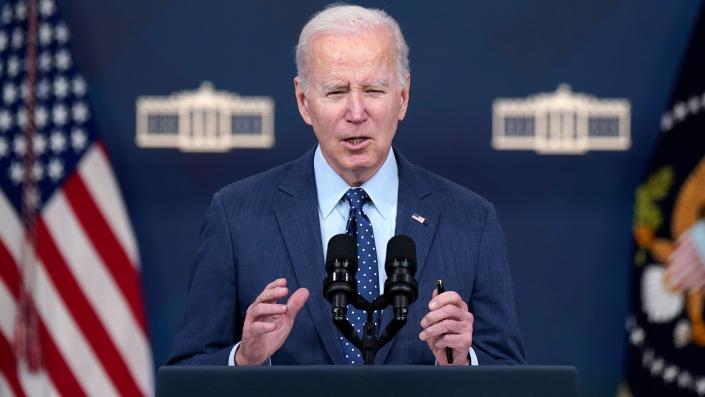Seven state attorneys general and a court-appointed bankruptcy federal watchdog are opposing up to $94 million in pre-bankruptcy bonuses paid to top executives and other insiders at opioid drug firm Endo International in Chester County, court documents show.
The bonuses to the highest executives were doled out in “secret” and drain financial resources of the money-losing Endo available for victims of the Malvern company’s addictive pills, according to state attorneys general who filed their objections as a committee on Wednesday in New York.
Pennsylvania Attorney General Josh Shapiro is one of the seven whose court filing called the top executive pre-bankruptcy bonuses “excessive.”
Endo, facing mounds of litigation over its alleged role in the national opioid crisis, filed for bankruptcy protection on Aug. 16. The Inquirer first reported on the bonuses days later.
U.S. Trustee William Harrington, the watchdog, said in a separate court filing earlier this month that Endo paid $94 million in bonuses to top executives and other insiders in the months prior to the bankruptcy filing, while Endo’s restructuring plan leaves only $27.4 million initially for individual opioid victims who are not state entities.
Endo has “provided virtually no information, much less sufficient information” to evaluate the bonus payments, Harrington told the court.
Endo paid the last batch of pre-bankruptcy bonuses to top executives less than a week before it filed. On Aug. 11, Endo agreed to pay chief executive Blaise Coleman $11.85 million; Matthew J. Maletta, chief legal officer, $3.5 million; Patrick Barry, president of global commercial operations, $3.3 million; and Mark Bradley, chief financial officer, $3.5 million.
Endo is expected to respond in bankruptcy court on Monday. The drug firm had no comment Friday.
For an Aug. 24 Inquirer story about the executive bonuses, an Endo spokesperson said that “the recent incentive and retention payments are critical to the continuity of Endo’s business during the Chapter 11 proceedings and were approved by Endo’s independent board members.”
The spokesperson said it was important to note that a portion of the bonuses “must be repaid if certain pre-established financial and operational targets are not met in 2022 and 2023.” The spokesperson also said in the statement last month that the “payments are subject to the recipient’s continued employment with Endo over multiple years.”
Temple University law professor Jonathan Lipson said Friday that the court objections to the bonuses “paint a picture of Endo executives pillaging the company before bankruptcy, leaving little left for tort victims. There may be more to the story, and certainly employees should be paid fairly. But the bonuses raise important questions about who management was acting for. People are concerned that the [bonus] money was misspent and should go to the creditors instead.”
Endo, which is based in Ireland for tax purposes but runs its U.S. business out of Malvern, was one of the nation’s largest opioid manufacturers and marketers with its flagship Opana pain pill and less-expensive generic opioid pills.
Endo pulled the highly potent Opana from the market in 2017 after the Food and Drug Administration asked it to because of potential for abuse.
Though Endo says in court documents that Opana accounted for less than 1% of the opioid market, Tennessee reeled from Endo’s Opana tablets with overdoses and addictions. According to a lawsuit filed against the company in 2019 by the state’s then-Attorney General Herbert H. Slatery III, almost one million more of Endo’s Opana ER tablets were sold in the Knoxville area between 2007 and 2014 than in New York, Los Angeles, and Chicago — combined.
In August, Endo reported that second-quarter revenues fell 20%, mostly because of new generic competition on its branded Vasostrict drug for a diabetes condition. A bankruptcy court filing says Endo spends more than $200 million a year on litigation costs for opioid and other lawsuits, twice what it spends on research and development. The company faces 3,100 opioid suits, many brought by government entities.
U.S. Bankruptcy Judge James Garrity of the Southern District of New York has scheduled a hearing Wednesday on wage and compensation for employees while Endo is restructuring its ailing business in bankruptcy court.
A group of state attorneys general was negotiating with Endo as it prepared for its bankruptcy filing. The “Multi-State Endo Executive Committee” comprises the attorneys general from Maine, Massachusetts, New Hampshire, Vermont, and Virginia, in addition to those from Tennessee and Pennsylvania. The committee, Endo, and its secured lenders agreed to settle the state and local government suits for $450 million over a decade.
The top executive “bonuses were paid in secret at a time when Endo was in active negotiations with the [committee] regarding states’ opioid litigation claims against the company,” Wednesday’s court filing by the state attorneys general said.



